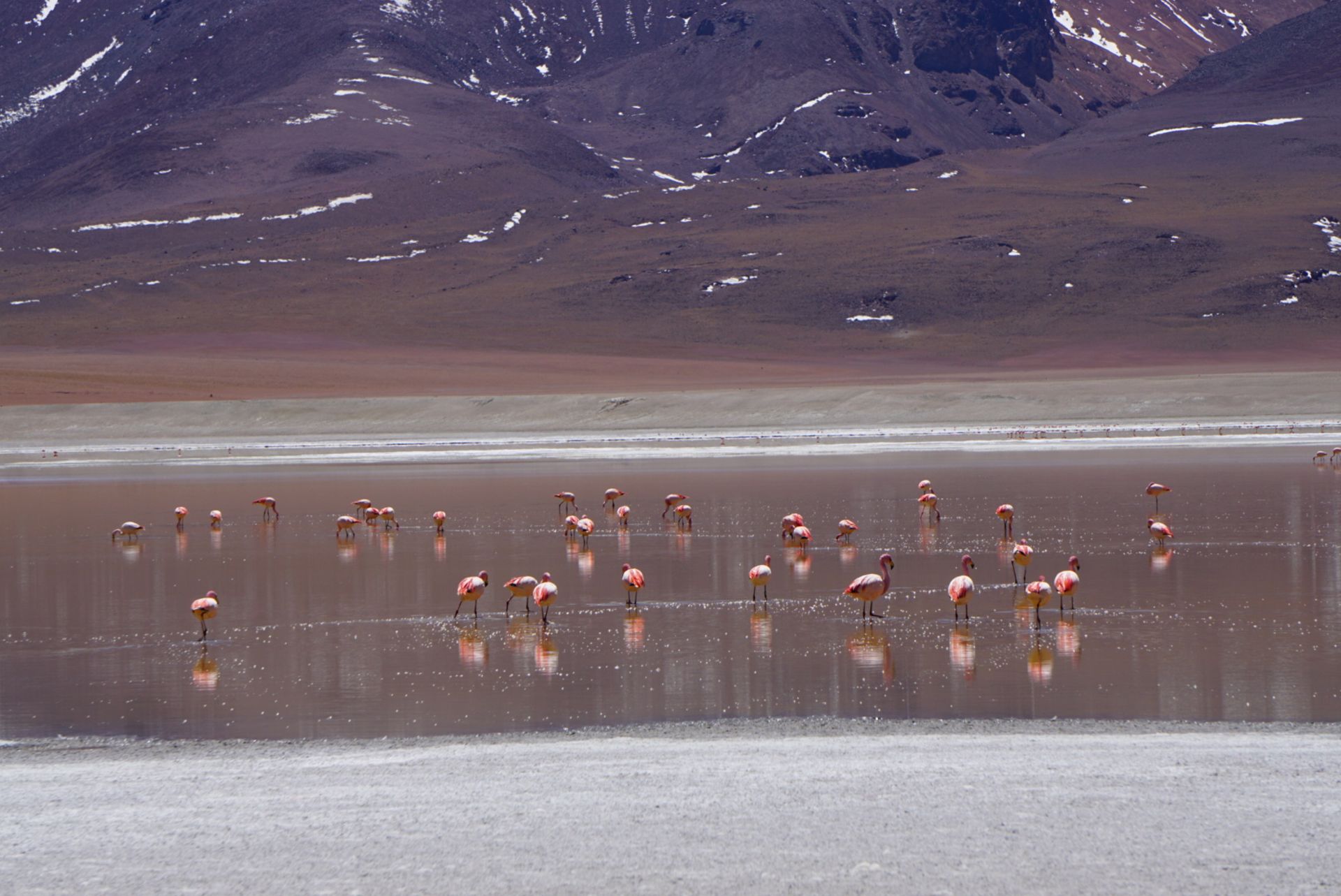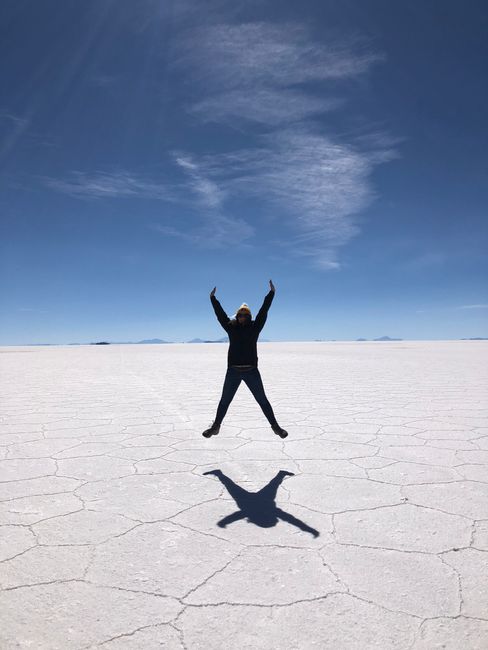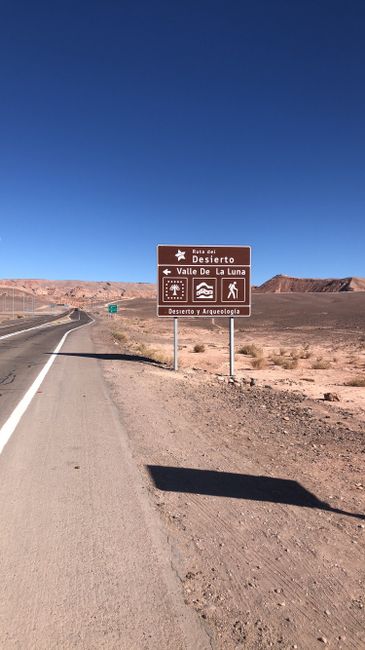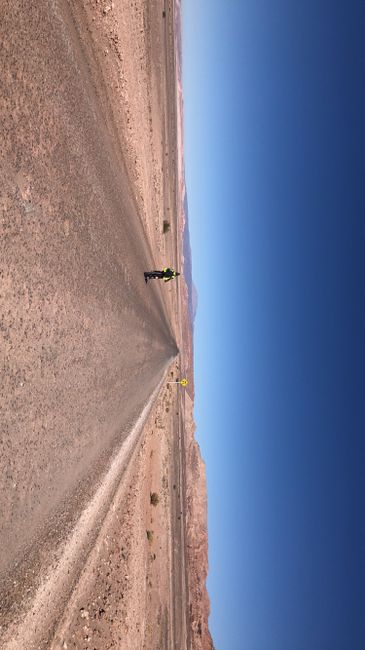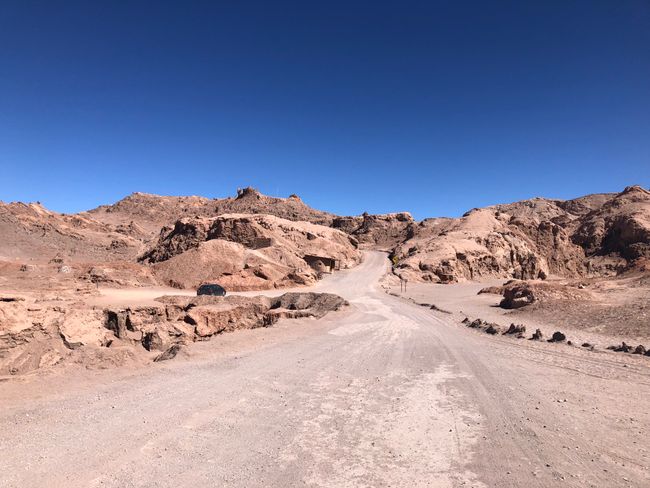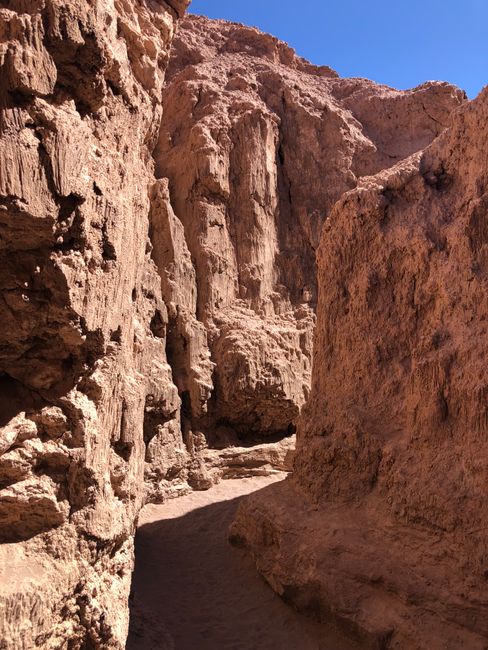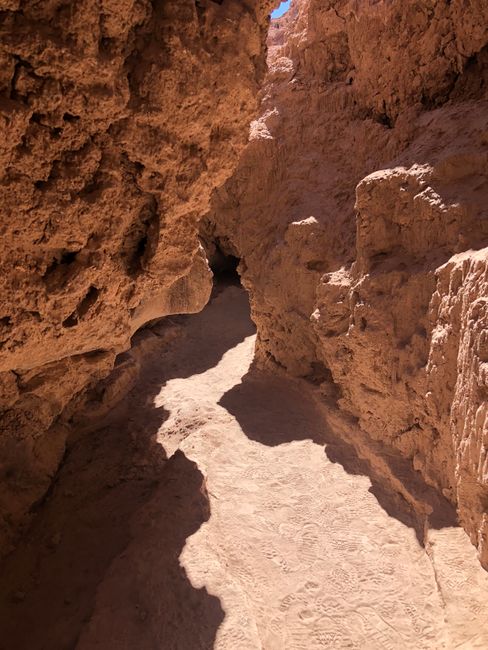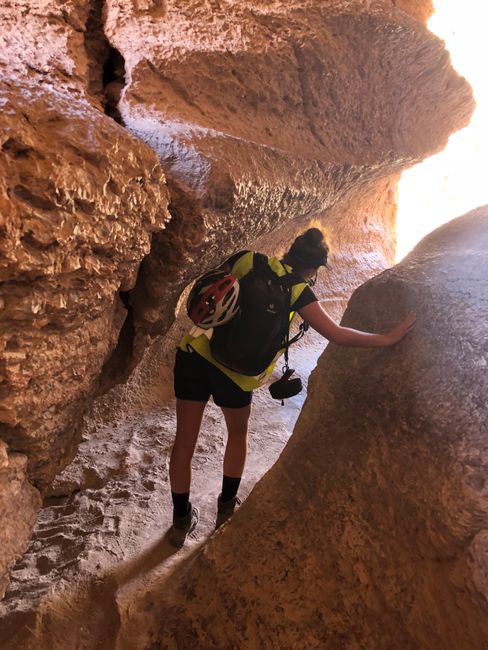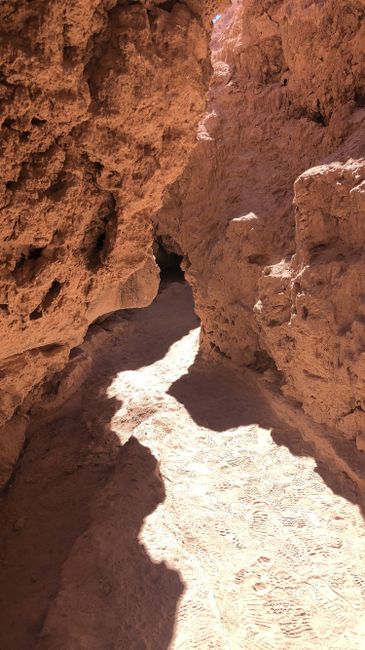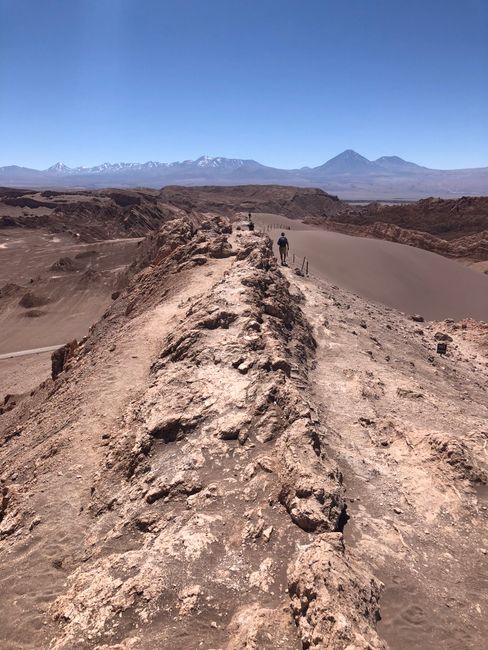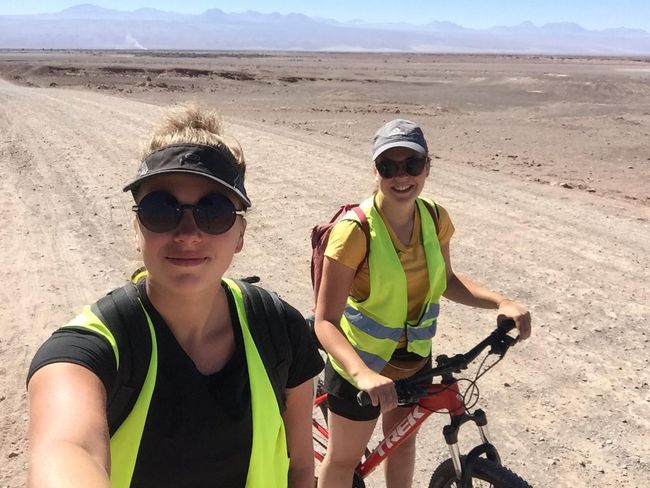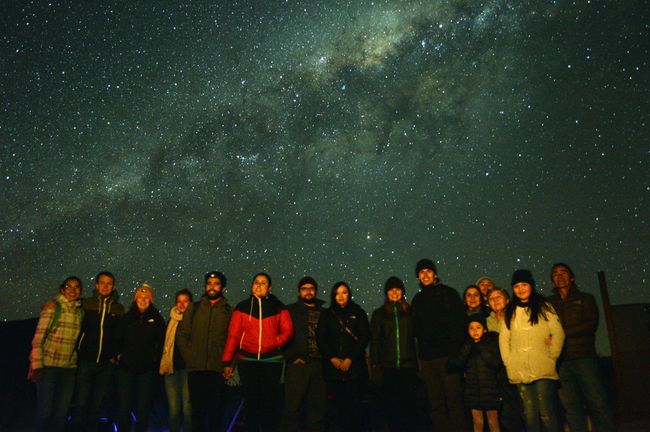San Pedro de Atacama
Foillsichte: 03.10.2018
Subscribe to Newsletter
In Uyuni we noticed that we had forgotten to book a hostel in San Pedro. So we quickly looked for a café and searched for a room for ourselves.
The border crossing to Chile was a bit exciting for us. We received a visa for 90 days. Then our luggage was searched and we were allowed to enter. Before that, as Europeans, we had to pay an exit fee of 15 Bolivianos in Bolivia. When we arrived in San Pedro, we were initially a bit disappointed because the customs officer promised us a lot about Chile and we could only see tin huts everywhere. But after we walked to the city center, everything looked different. White, well-maintained houses and a beautiful downtown. Our hostel was also cozy and tidy. On the day of our arrival, we explored San Pedro, exchanged our money, and made a plan for the next few days.
The next day we rented bicycles for 6 hours and rode into the Atacama Desert. It sounds a bit silly, but it was incredibly amazing. We rode through a landscape where there was nothing but rocks and sand as far as the eye could see. Of course, we didn't just ride into the desert without a plan. Many other tourists also rent bicycles and ride to the "Valle de la Luna" National Park. There are also tours offered from San Pedro, but they are rather expensive. We liked to do a tour on our own and decide how long the tour should last and when we had enough. We took a lunch break on a big sand dune and rode back to San Pedro in the midday sun.
The day before, we booked "Stargazing" for the evening. For me, it was one of the best tours we have done so far because the guides spoke really good English, had incredible knowledge, and were still fascinated despite telling the same things every day. Everything was also super interesting, so time flew by.
The tour consisted of two phases:
In the first phase, we lay in loungers so that we could view the full starry sky. San Pedro de Atacama is supposedly one of the best places in the world to observe the stars due to its 11 months of cloud-free visibility, its altitude of 2400 meters, and its large open space because there are large cities far apart.
With a laser, we were shown Jupiter, Mars, Venus, and Saturn in the sky, as well as the Scorpio, 2 clusters outside of our galaxy, a black hole, and the triangle with the constellation of the respective stars (musical instrument, eagle, and swan).
The guide explained to us that what we call the Milky Way and can see is only the center of the Milky Way, so the entire starry sky/the entire galaxy is actually the Milky Way. It sounds logical, of course, but I was still not aware of it at all.
Later, it was suddenly no longer possible to see Venus, as it had disappeared due to the rotation of the Earth.
In the second phase, we were able to see several things through different telescopes, so I could see the ring around Saturn, Mars and Jupiter, the constellation of the butterfly, a cluster that was 200,000 light-years away with 10 trillion stars, stardust from which new stars were born, the heart of the Scorpio, and several double stars that shine blue (young star) and red (old star).
It was really incredibly impressive.
The next afternoon, we took a bus to Calama in the late afternoon. Calama was just a stopover as our actual destination was La Serena.
Subscribe to Newsletter
Freagairt
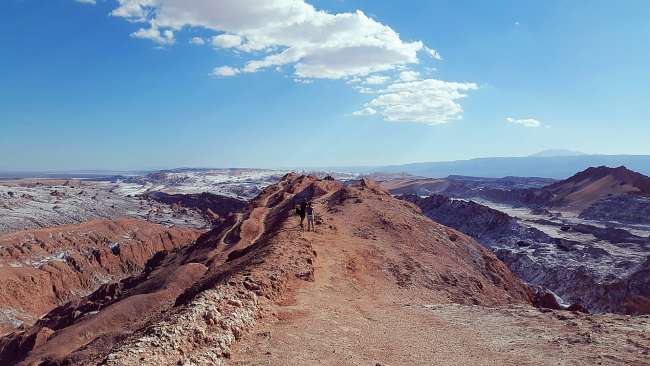
Aithisgean siubhail Chile
